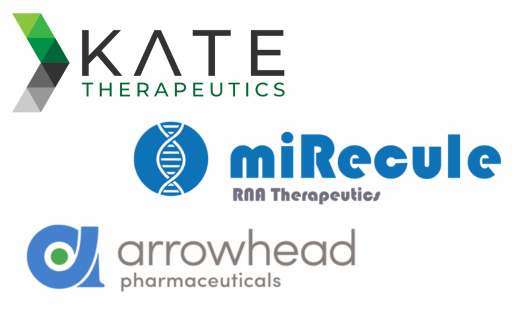By June Kinoshita, FSHD Society
 The pharmaceutical industry is showing a growing interest in developing therapies for facioscapulohumeral muscular dystrophy (FSHD), a rare genetic disorder affecting an estimated one million people worldwide. This trend is evident through recent high-profile deals between major pharmaceutical companies and smaller biotechnology firms specializing in FSHD and other muscle conditions.
The pharmaceutical industry is showing a growing interest in developing therapies for facioscapulohumeral muscular dystrophy (FSHD), a rare genetic disorder affecting an estimated one million people worldwide. This trend is evident through recent high-profile deals between major pharmaceutical companies and smaller biotechnology firms specializing in FSHD and other muscle conditions.
This past May, Sanofi, the eighth largest pharmaceutical company in the world, entered into a collaboration and licensing agreement with Fulcrum Therapeutics for the development and commercialization of losmapimod, a potential first-in-class treatment for FSHD. The deal, worth up to $1 billion, granted Sanofi rights to losmapimod outside the U.S., with Fulcrum retaining U.S. rights. Fulcrum halted its FSHD program in September after its phase 3 trial of losmapimod failed to meet its primary endpoint, but this setback has not damped big pharma’s interest.
Just this past November, pharma giant Novartis made a significant move by acquiring Kate Therapeutics for up to $1.1 billion, expanding its capabilities to advance gene therapies in neuromuscular conditions. Kate Therapeutics is developing drug candidates for various muscular dystrophies. Their FSHD candidate aims to deliver a microRNA against DUX4 to skeletal muscles. Kate’s Directed Evolution of AAV Capsid Leveraging In Vivo Expression of Transgene RNA (DELIVER) platform develops adeno-associated virus (AAV) to deliver therapeutic molecules selectively to muscle rather than other organs such as the liver. (See “His father’s FSHD inspired scientist to make a breakthrough”.)
Similarly, Sarepta Therapeutics has made a substantial investment in FSHD research through a global licensing and collaboration agreement with Arrowhead Pharmaceuticals. The deal, valued at over $1 billion, includes multiple siRNA programs targeting FSHD and other muscle disorders. Arrowhead’s lead product for FSHD, ARO-DUX4, is currently in a Phase 1/2 clinical trial. Sarepta’s gene therapy for Duchenne muscular dystorphy, Elevidys, received FDA approval in 2023. The agreement with Arrowhead will enhance Sarepta’s mid- and early-stage pipeline, complementing the company’s existing leadership in Duchenne.
Despite the disappointment with losmapimod, Sanofi will also remain active in FSHD through its strategic collaboration with miRecule for the development of an antibody-RNA conjugate (ARC) to treat FSHD. This deal, worth up to $400 million, combines miRecule’s anti-DUX4 RNA therapy with Sanofi’s muscle-targeted NANOBODY technology. The resulting therapy aims to selectively target and suppress the underlying cause of FSHD in muscle tissue. This partnership leverages Sanofi’s global reach and expertise in rare diseases to bring FSHD treatment to patients worldwide.
These investments by major pharmaceutical companies highlight the increasing recognition of FSHD as a significant unmet medical need and the potential for innovative therapies to make a meaningful impact on patients’ lives. These developments also mean there is intensifying urgency to educate individuals with FSHD, patient advocacy groups, and clinicians on the steps they should take to be prepared for upcoming clinical trials and treatments.


Thank you!!! Ich freue mich riesig. Das gibt Hoffnung.
Vergelt`s Gott
So if there is anything left of me in 15 or 20 or 30 years maybe I can be helped from some of these arrangements.